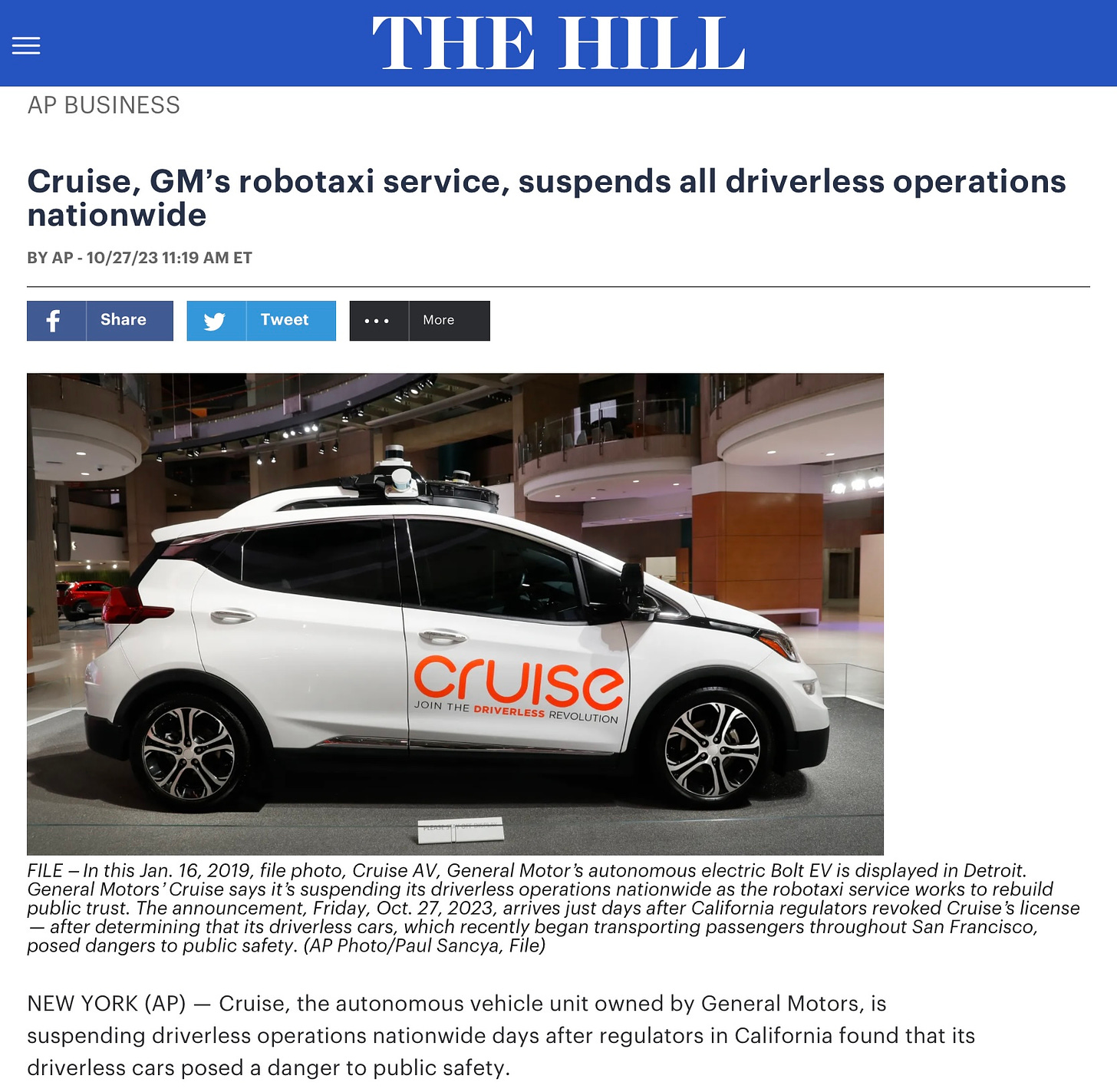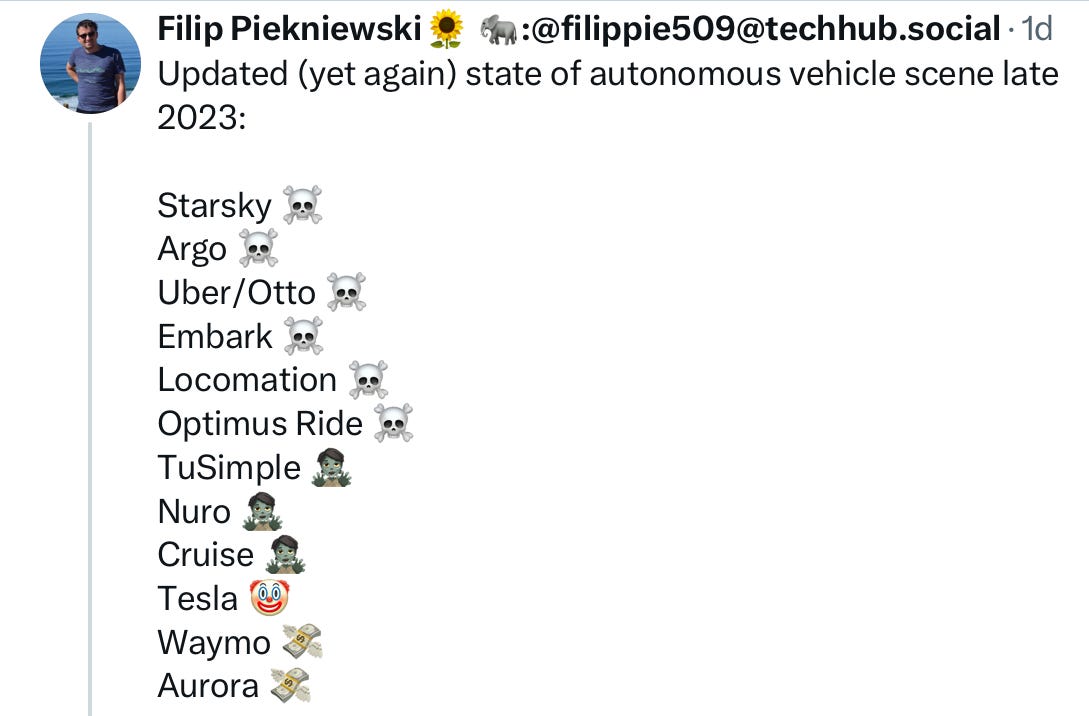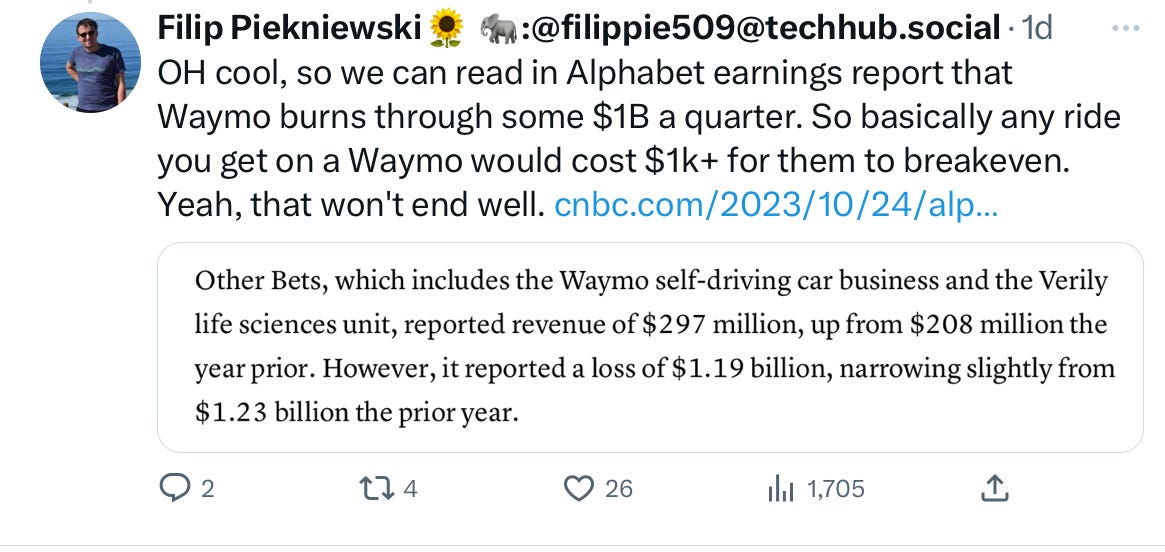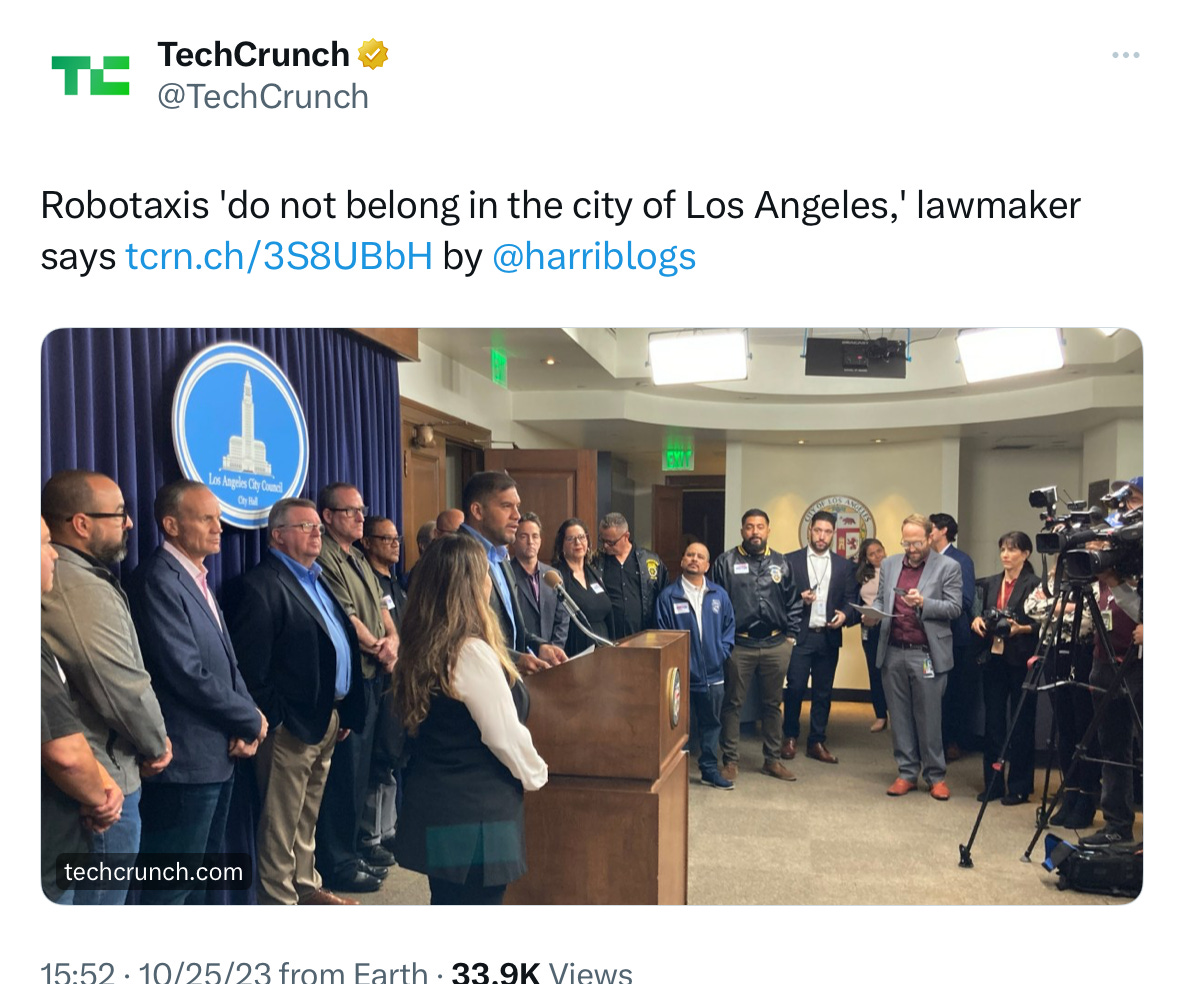I lost my license
now I don’t drive
….
Life’s been good to me so far
— Joe Walsh
Breaking news:

§
If there’s been one person who has been even more skeptical about driverless cars than I have, going back almost a decade, it is the software engineer and computer visiion scientist Filip Piekniewski. A couple days ago he posted a grim summary of what has happened to the $100 billion or so that have gone into driverless cars.

6 companies out of business, three struggling, leaving Tesla, Waymo and Aurora (and a few others not shown, like Comma and Waabi.)
(Strictly speaking Tesla doesn’t even build driverless cars; to my knowledge they are not, unlike some of the others testing anything without a human in the loop. The fact make Elon did not make his customary “real soon now” announcement at his latest quarterly Tesla call is hardly an endorsement of their progress.)
Cruise for what it’s worth may still have a lot of money, but California just slapped them in the face extremely hard, revoking their license to drive without a safety driver at the wheel, out of safety concerns. Cruise apparently also self-inflicted a major trust wound by not initially acknowledging the fact that one of their cars dragged a woman along a street.
And literally just I was finishing up this essay, GM suspended Cruise nationwide.
§
By Pieknewki’s reckoning, Waymo’s not going so well either
A rumor that I hear is that Waymo’s techniques demand an enormous amount of highly specific customization, perhaps in the form of multiple hand-written rules for each fairly small stretch of road. If that’s true, what works in a certain road in San Francisco might not generalize all that well to other places; every new jurisdiction (and every individual road within a jurisdiction) might need a lot of expensive work.
§
Aside from the grim financials, there’s a backlash now:
So Piekniewski is about to ready to call the whole thing, writing this prescient Tweet a couple days ago, even before the big Cruise announcement just now:
§
Piekniewski could well be right. I agree that if Alphabet pull the plug, there will likely be a self-driving winter across the industry (though for now players like Aurora and Waabi may still have plenty of cash). The Cruise announcement is likely to have a major impact, too.
But I am actually a little more optimistic overall than Piekniewski. If Alphabet pulls the plug on Waymo, it may be the end of driverless cars for now–but not forever.
I—truly a techno-optimist, popular perceptions to the contrary—do think driverless will come, eventually. 30,000 people dying on US roads a year, a millio worldwide, is no joke; there is still room for improvement. I do still think that reliable self-driving cars will emerge, and eventually be safer than humans, who can get distracted, become tired and so forth.
To get there, though, what we need is a much smarter AI, a kind that can reason, and not hallucinate, grounded in reality and not just corpus statistics— which require fundamental research of a sort that is currently getting starved out in the LLM euphoria.
The same by the way probably holds for generative search and personalized agents. We will eventually see search engines that return neatly written paragraphs, and eventually see AI agents that can organize lives. Or at least our grandchildren or their children will.
The sooner we recognize that there is life beyond current approaches to AI, the faster we will get there.
Gary Marcus thinks current AI is on the wrong track. He has been hoping for a synthesis between neural networks (currently popular) and symbolic (classical) AI for 30 years. He doesn’t see how to get serious work on that funded in the current climate, but still hopes that day will come.







Driverless cars are bad because cars are bad. I'm glad to see their false promises of road safety come to an end so we can stop risking lives in pursuit of products that don't exist and do the things that we know make roads safer for everyone: traffic calming, road design for visibility, lower speed limits, walkability, and most importantly: building mass transit that people want to use.
Matthew B. Crawford has an excellent book on why we absolutely don't want driverless cars: "Why We Drive".